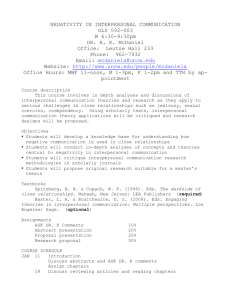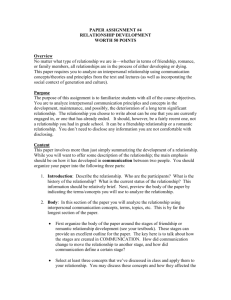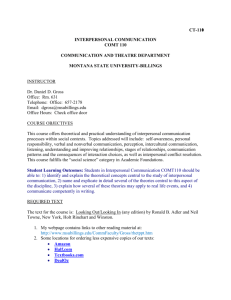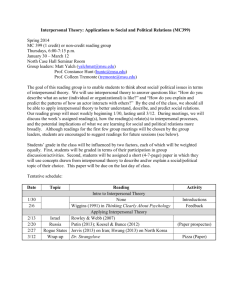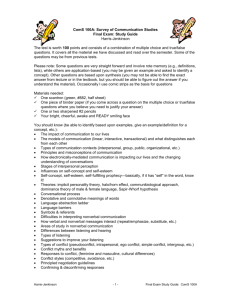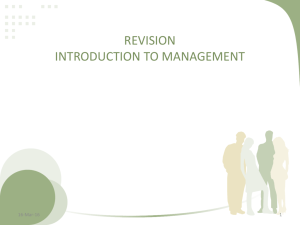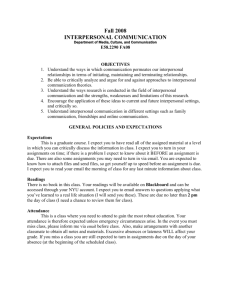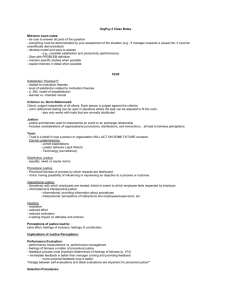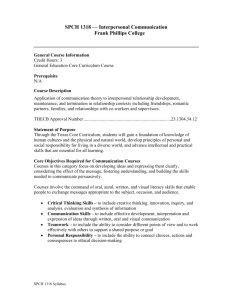INTERPERSONAL COMMUNICATION II
advertisement
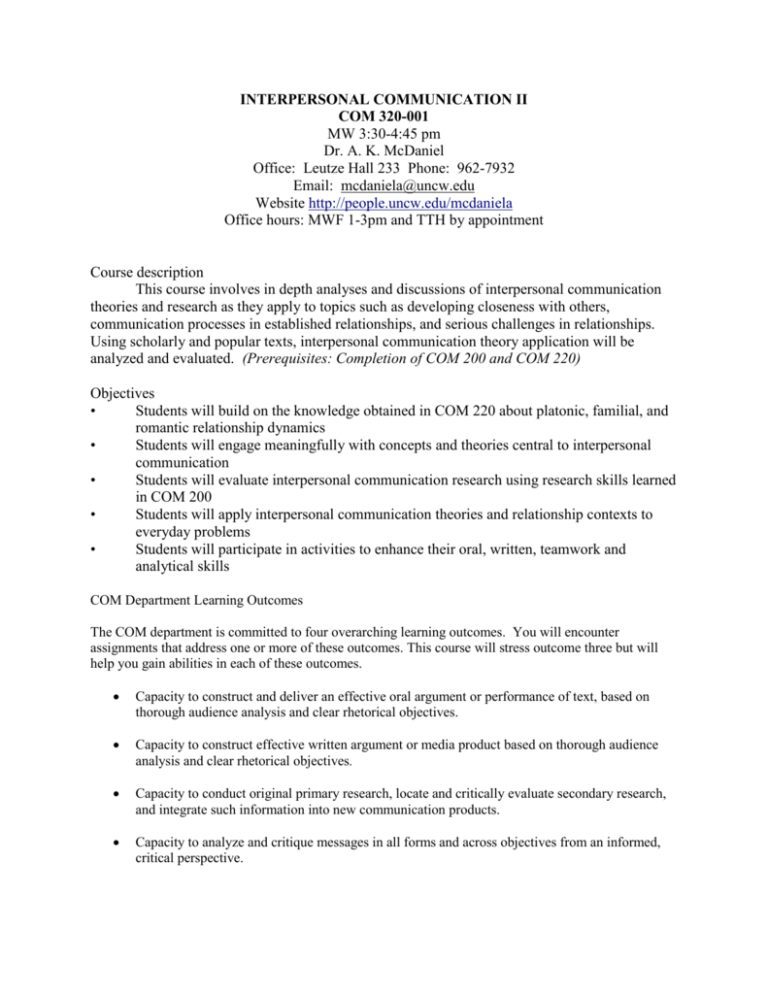
INTERPERSONAL COMMUNICATION II COM 320-001 MW 3:30-4:45 pm Dr. A. K. McDaniel Office: Leutze Hall 233 Phone: 962-7932 Email: mcdaniela@uncw.edu Website http://people.uncw.edu/mcdaniela Office hours: MWF 1-3pm and TTH by appointment Course description This course involves in depth analyses and discussions of interpersonal communication theories and research as they apply to topics such as developing closeness with others, communication processes in established relationships, and serious challenges in relationships. Using scholarly and popular texts, interpersonal communication theory application will be analyzed and evaluated. (Prerequisites: Completion of COM 200 and COM 220) Objectives • Students will build on the knowledge obtained in COM 220 about platonic, familial, and romantic relationship dynamics • Students will engage meaningfully with concepts and theories central to interpersonal communication • Students will evaluate interpersonal communication research using research skills learned in COM 200 • Students will apply interpersonal communication theories and relationship contexts to everyday problems • Students will participate in activities to enhance their oral, written, teamwork and analytical skills COM Department Learning Outcomes The COM department is committed to four overarching learning outcomes. You will encounter assignments that address one or more of these outcomes. This course will stress outcome three but will help you gain abilities in each of these outcomes. Capacity to construct and deliver an effective oral argument or performance of text, based on thorough audience analysis and clear rhetorical objectives. Capacity to construct effective written argument or media product based on thorough audience analysis and clear rhetorical objectives. Capacity to conduct original primary research, locate and critically evaluate secondary research, and integrate such information into new communication products. Capacity to analyze and critique messages in all forms and across objectives from an informed, critical perspective. This course fulfills the Writing Intensive and Information Literacy requirements for University Studies There is no need to buy a textbook for this class. See the READINGS link on the website for theories and concepts. Theories Griffin, E. (2009). A first look at communication theory. Seventh edition. New York, NY: McGraw-Hill. Concepts Gavin, K. M. (2010). Making connections: Reading in relational communication. Fifth edition. New York, NY: Oxford University Press GRADING Assignments Chapter Analyses (4) Annotated Abstract Presentation IC Theory Paper IC Concept Paper BONUS POINTS—TOP HAT 20% 20% 25% 35% COURSE SCHEDULE AUG 19 Introduction 24 Assign chapters and Discuss TOP HAT 26 Discuss Annotated Abstract assignment 31 Discuss chapter analyses and ASK DR. K website SEPT 2 7 9 14 16 21 23 28 30 Discuss IC Theory Paper and role play topics LABOR DAY Discuss Attribution Theory Theory presentation and analysis due Discuss Social Penetration Theory Theory presentation and analysis due Discuss Expectancy Violations Theory Theory presentation and analysis due Discuss Uncertainty Reduction Theory OCT 5 7 12 14 19 RAIN DAY Theory presentation and analysis due FALL BREAK Discuss Relational Dialectics Theory presentation and analysis due Discuss Theory Paper IC Theory Paper due MID-SEMESTER FEEDBACK 21 26 28 Discuss Family Relationships and Divorce NOV 2 4 9 11 16 18 23 25 30 Concept presentation and analysis due Discuss Same-sex and Cross-sex Friendship Concept presentation and analysis due Discuss Workplace Communication Concept presentation and analysis due Discuss Acquaintanceship Concept presentation and analysis due THANKSGIVING Discuss Nonmarital Cohabitation DEC 2 Concept presentation and analysis due Discuss IC Concept Paper and role play topics DEC 2 7 IDEA IC Concept Paper due
